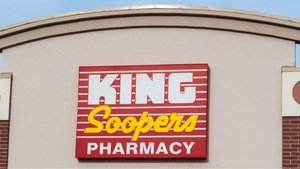In-store brands now targeting titans like PepsiCoIn-store brands now targeting titans like PepsiCo
Beverage king admits to private label penetration in certain categories

Is the in-store brand insurgence brash enough to take on someone big like PepsiCo? Apparently so.
According to PYMNTS, the beverage giant revealed a real concern over private brands in a recent call with analysts. PepsiCo CEO Ramon Laguarta was going over first quarter financial results when he announced that in-store products were showing growth in some of the beverage company’s categories like water, juices and salty snacks. Laguarta only sees private label prominence increasing in the coming months, particularly with salty snacks.
PYMNTS said it was the first time during the current inflation era where a major company like PepsiCo gave a nod to in-store brands during an earnings call. In the past, the generic labels were given a pat on the head, but in the end the major corporations were certain brand loyalty would win out.
As for the rest of the year, PepsiCo is uncertain how the market will unfold. The company sees several positive and negative scenarios as possibilities. According to a recent PYMNTS study titled “Consumer Inflation Sentiment Report: Higher Prices Fuel a Deal-Seeking Competition”, more than two-thirds of the 2,100 Americans surveyed said they see grocery prices on the rise over the next year. Additionally, in another report from PYMNTS (“Consumer Inflation Sentiment: The False Appeal of Deal-Chasing Consumers”) 67% of respondents said they cite price and discounts as key factors that influenced their decision of where to make their most recent grocery purchase.
During the first three months of this year, store brands picked up right where they left off in 2022, with double-digit sales increases and greater market share in both dollars and units, according to nationwide data provided to PLMA by Circana (formerly IRI and NPD). The figures include 2023 food and non-food sales in all outlets as of March 26.
“The Q1 results are particularly impressive since they are compared to 2022 sales figures, which were historically high for U.S. store brands,” said PLMA President Peggy Davies.
Highlights of the Q1 report:
Store brands continue to outperform national brands in sales. Across all U.S. grocery channels, store brand dollar volume jumped 10.3%, nearly twice the gain of national brands (which grew 5.6%), compared to the same three-month period a year ago
Store brand market shares jumped higher. Dollar share rose to 19.1% and unit share advanced to 20.8% vs. Q1 of last year when the numbers were 18.5% for dollars and 20.3% for units
Store brands fared significantly better than national brands in unit sales, as well. As was the case last year, all brands shed units. But like in 2022, store brand units decreased far less than those of national brands. During Q1 of 2023, they were off 1% vs. minus 3.9% for national brands, about one-fourth the decline
This disparity in unit sales can be attributed to consumers switching to store brands from national brands. It was even more pronounced in March, when store brands were down only 0.7% compared to national brands, which were off five times that figure at 3.5%
Among the 17 food and non-food departments Circana tracks for PLMA, 15 saw increased store brand dollar sales during the first quarter. Double-digit gainers were beverages (up 17.1%), bakery ( 16.8%), general food ( 16%), refrigerated ( 15.5%), floral ( 13.1%), deli prepared ( 12.4%) and health care ( 10%)
Other departmental winners included deli cheese (up 9%), general merchandise ( 8.8%), beauty ( 7.4%), frozen ( 7.1%), produce ( 6.8%), deli meat and liquor (both at 5.8%), and health ( 4.3%). Only tobacco (off 11.8%) and meat (down 1.6%) slipped
Looking at store brand unit sales, six departments improved, led by floral (up 5%), deli prepared ( 2.1%), bakery ( 1.8%), general merchandise ( 1.3%), produce ( 0.8%), and liquor ( 0.7%)
About the Author
You May Also Like






